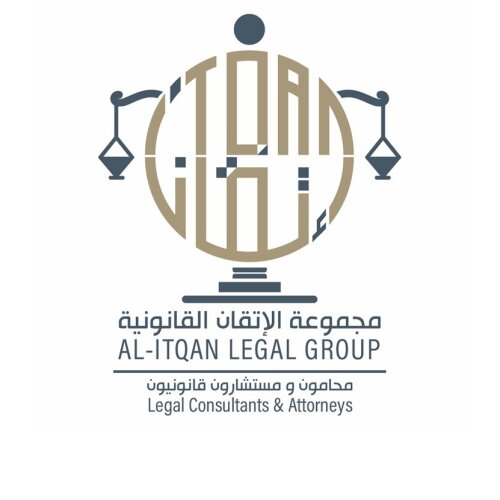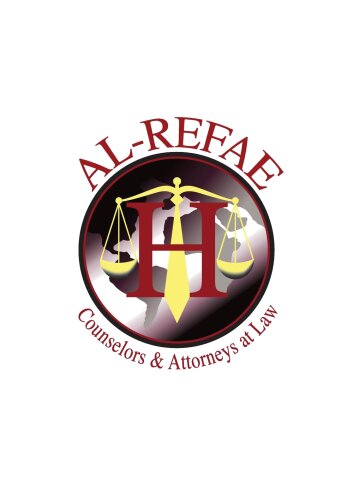Best Acquisition / Leveraged Finance Lawyers in Kuwait
Share your needs with us, get contacted by law firms.
Free. Takes 2 min.
Or refine your search by selecting a city:
List of the best lawyers in Kuwait
About Acquisition / Leveraged Finance Law in Kuwait
Acquisition and leveraged finance are critical areas of law in Kuwait that support the purchase, sale, and restructuring of businesses. Acquisition finance typically involves securing funds to buy all or part of another business, while leveraged finance uses significant amounts of borrowed funds, often secured by assets, to finance these transactions. Kuwait, as a rapidly developing regional commercial hub, follows a mix of civil and Islamic law frameworks, impacting how acquisition and leveraged financing deals are structured and executed. Both domestic and foreign businesses must navigate complex regulations, local market practices, and financial sector norms to complete transactions successfully.
Why You May Need a Lawyer
Legal assistance is essential in acquisition and leveraged finance for several reasons. Whether you are acquiring a company, seeking to finance an expansion, or restructuring existing debt, a knowledgeable lawyer will help with:
- Structuring transactions and determining the optimal finance mechanism
- Navigating cross-border regulatory compliance and approvals
- Conducting due diligence to assess financial and legal risks
- Negotiating terms with lenders, sellers, and buyers
- Drafting and reviewing complex contractual documents
- Complying with Kuwait's laws regarding foreign ownership, security arrangements, and financial regulations
- Resolving disputes that may arise during or after the transaction
- Advising on Sharia-compliant finance structures if required
Local Laws Overview
Kuwait's legal framework for acquisition and leveraged finance is influenced by a combination of civil law principles and Sharia law, alongside specific legislation that applies to companies and financial institutions. Key aspects include:
- Foreign Ownership: Foreigners face restrictions on direct ownership in many sectors but recent reforms allow for increased foreign shareholding under certain conditions.
- Central Bank Regulations: The Central Bank of Kuwait oversees financial institutions and regulates lending practices, including caps on leverage and capital requirements.
- Security Interests: The ability to take and enforce security over assets has improved due to recent laws covering movables and real estate, though enforcement can still present challenges.
- Merger Control: Certain acquisitions, particularly those affecting market competition or involving listed companies, are subject to approval by regulators such as the Capital Markets Authority and Competition Protection Authority.
- Company Law: The Companies Law sets out procedures for mergers, acquisitions, and restructuring, including shareholder and governmental approvals.
- Sharia Compliance: Kuwait recognizes both conventional and Islamic finance arrangements, so some deals may need to adhere to Islamic banking principles.
Frequently Asked Questions
What is leveraged finance and how is it different from conventional loans?
Leveraged finance refers to borrowing funds to increase potential returns, typically using assets as collateral and taking on higher risk compared to traditional loans. It is commonly used for acquisitions and buyouts.
Can foreign investors acquire Kuwait-based companies using leveraged finance?
Yes, foreign investors can acquire local companies, but they must comply with restrictions on foreign ownership and obtain necessary regulatory approvals. Deal structuring often requires local legal support.
Are there limits to the amount of leverage a borrower can take on in Kuwait?
Yes, the Central Bank of Kuwait sets limits on the level of debt that financial institutions can extend. These caps help manage systemic risk in the financial sector.
How is security over assets created and enforced in Kuwait?
Security over movable and immovable assets is governed by new legislation which has streamlined registration and enforcement, but practical challenges may arise, especially in cross-border contexts.
What are the typical regulatory approvals required for acquisitions?
Depending on the sector, approvals may be needed from the Ministry of Commerce and Industry, Capital Markets Authority, Central Bank, and sometimes the Competition Protection Authority.
Do acquisition and leveraged finance deals need to comply with Sharia law?
Not all deals must comply, but if parties choose Islamic finance instruments or involve Islamic banks, Sharia compliance is required. This affects the structure and documentation of the deal.
What are the risks of not conducting proper legal due diligence?
Failure to conduct due diligence can lead to costly legal disputes, unenforceable agreements, undisclosed liabilities, and regulatory penalties.
How are disputes resolved in acquisition or finance deals in Kuwait?
Disputes are typically resolved through Kuwait's judicial system, but parties may also agree to arbitration. Enforcement of foreign judgments or arbitral awards follows specific legal procedures.
What documentation is commonly needed for an acquisition finance transaction?
Key documents include a loan agreement, security documents, guarantees, corporate approvals, regulatory filings, and sometimes Sharia compliance certifications.
When should I involve a lawyer in an acquisition or leveraged finance deal?
It is advisable to involve a lawyer as early as possible, ideally during the planning and negotiation stages, to identify risks and ensure compliance with all legal requirements.
Additional Resources
Several organizations and authorities are useful for guidance and regulatory information on acquisition and leveraged finance in Kuwait:
- Ministry of Commerce and Industry: Oversees company law, mergers, and acquisitions
- Central Bank of Kuwait: Regulates financial institutions and banking regulations
- Capital Markets Authority: Supervises securities, stock exchanges, and public M&A deals
- Kuwait Chamber of Commerce and Industry: Provides support and guidance for investors
- Competition Protection Authority: Ensures compliance with competition laws in mergers and acquisitions
- Local law firms: Many offer specialist teams in banking and finance law
Next Steps
If you are considering an acquisition or leveraged finance transaction in Kuwait, take the following steps:
- Outline your objectives and the structure of the transaction you are considering
- Consult a qualified and experienced lawyer specializing in acquisition or finance law early in the process
- Gather preliminary documentation related to your business and financing needs
- Undertake preliminary due diligence with legal guidance
- Engage with relevant authorities and financial institutions as needed
- Ensure compliance with both local legislation and industry-specific regulations
- Discuss timelines, fees, and agreements thoroughly with your legal adviser
Early legal advice is crucial in Kuwait's evolving legal environment. An experienced lawyer will help you navigate complex legal requirements, avoid common pitfalls, and increase the likelihood of a successful transaction.
Lawzana helps you find the best lawyers and law firms in Kuwait through a curated and pre-screened list of qualified legal professionals. Our platform offers rankings and detailed profiles of attorneys and law firms, allowing you to compare based on practice areas, including Acquisition / Leveraged Finance, experience, and client feedback.
Each profile includes a description of the firm's areas of practice, client reviews, team members and partners, year of establishment, spoken languages, office locations, contact information, social media presence, and any published articles or resources. Most firms on our platform speak English and are experienced in both local and international legal matters.
Get a quote from top-rated law firms in Kuwait — quickly, securely, and without unnecessary hassle.
Disclaimer:
The information provided on this page is for general informational purposes only and does not constitute legal advice. While we strive to ensure the accuracy and relevance of the content, legal information may change over time, and interpretations of the law can vary. You should always consult with a qualified legal professional for advice specific to your situation.
We disclaim all liability for actions taken or not taken based on the content of this page. If you believe any information is incorrect or outdated, please contact us, and we will review and update it where appropriate.
Browse acquisition / leveraged finance law firms by city in Kuwait
Refine your search by selecting a city.
















